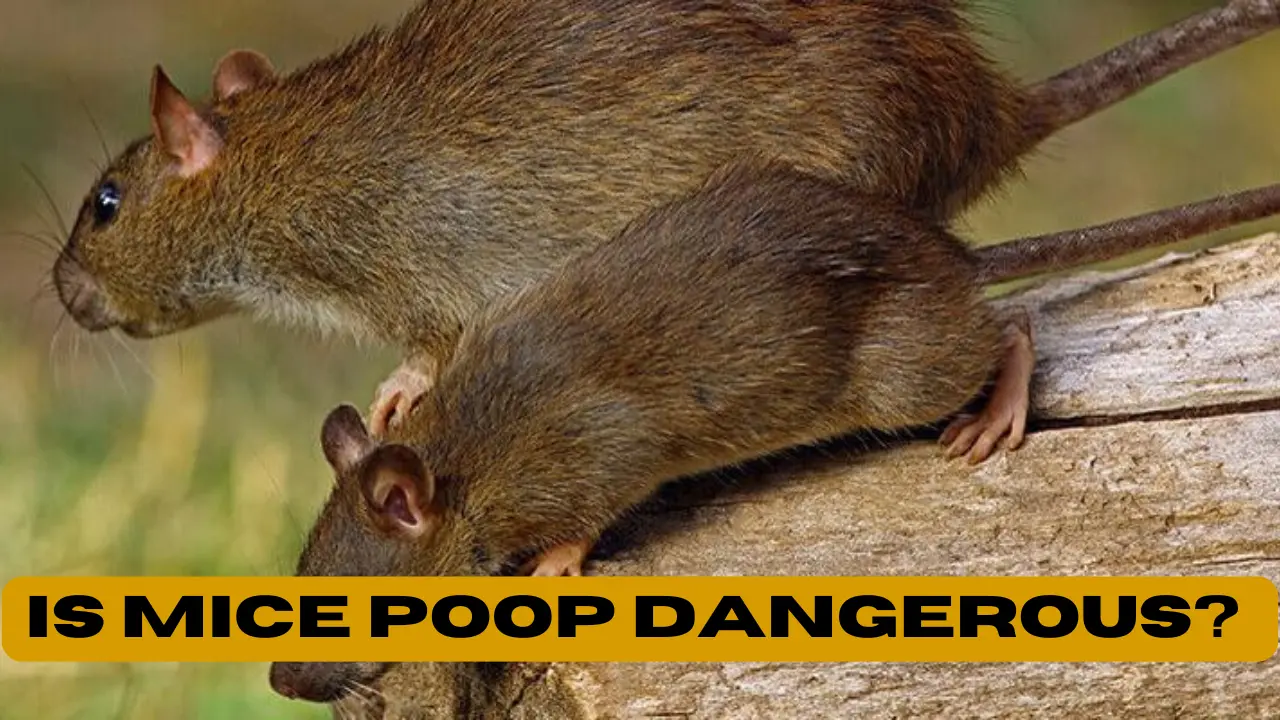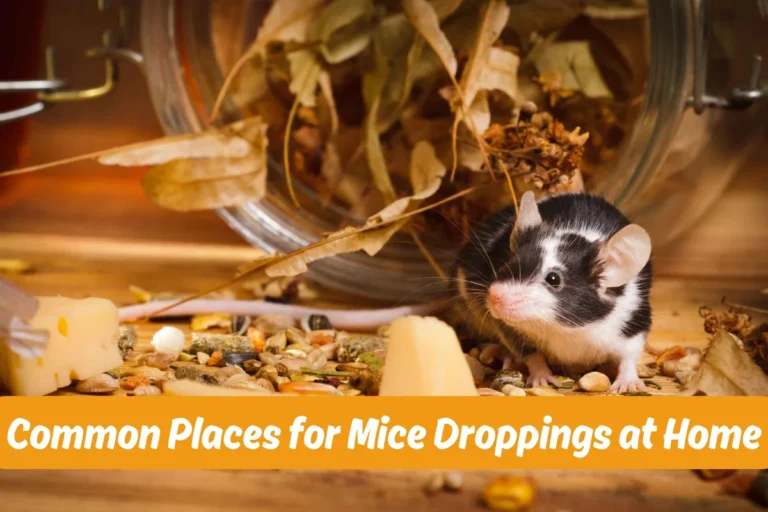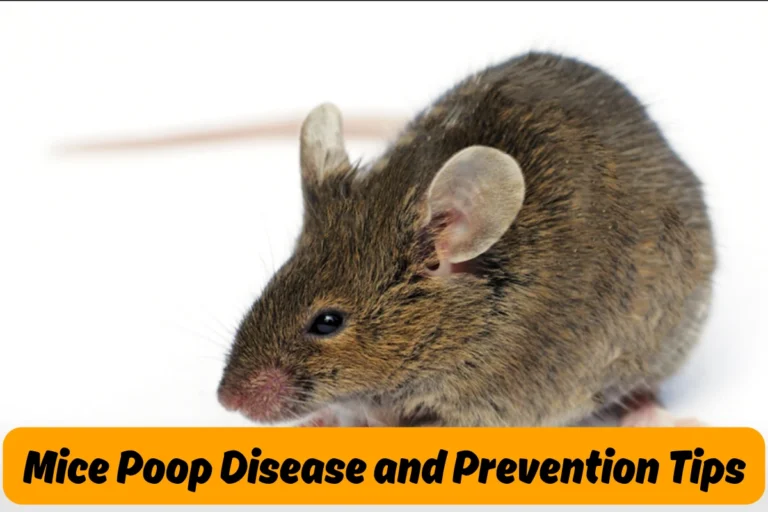Is Mice Poop Dangerous? Learn Risks & Safety Guidelines 2024

What is Mice Poop?
Mice Poop better known as mouse droppings or mice feces is an indicator of mice infestation in the house. It can be identified easily by its color, size and shape. droppings are generally a quarter of an inch (/4 inch) or 3-7 mm long with shiny black or brown color. Mice pellets (droppings) have a granular shape and resemble grains of rice.
Introduction
As winter comes, humans do every possible thing to stay warm depending upon the coldness of weather and the same goes for small animals and rodents. They cannot wear clothes like humans so they rely on warm areas and indoor shelters to stay warm. According to research, almost 95% of homes in the United States are affected by mice infestations in winter. Rodents like Mice or rats can carry harmful bacteria, diseases or viruses that pose serious health risks to humans in many ways. Some of them can be serious or even deadly for humans.
Today we are going to discuss important information regarding health risks associated with mice poop and will share some tips to stay safe.
Can you get Sick from Mice Droppings?
Ever wondered what might happen if you come across with mice poop or mouse droppings. People like you and me who are dealing with mice poop might be curious to know can you get sick from mice poop? The answer is Yes, Rodents like mice and rats may not seem so dangerous.
But if you see mice droppings from a health perspective, you might be shocked to know how harmful they can be. Rodents like mice and rats spread disease through their saliva, urine and feces.
These diseases can cause serious health damage and can turn into deadly conditions if not treated properly.
How long is Mice Poop Dangerous?
It is a matter of fact that dangers can come from the droppings of mice. Furthermore, it is also essential to know how long mice feces can be dangerous for you or your family. Several factors influence the time of droppings to remain infectious.
According to the CDC (Centers for Disease Control and Prevention) and some pest professionals mice droppings remain infectious for particular periods of time depending on environment and temperature. The virus in mice remains contagious for 2 to 3 days in a humid environment or at room temperature but remains dangerous in sunlight for a few hours.
Mouse Poop Poisoning Symptoms
A common question most people asked, should I be worried if I touch mice droppings?
Symptoms images
Touching mice droppings can potentially expose a person to various health risks due to the presence of bacteria, viruses and parasites in poop.
A common symptom of the most famous disease caused by droppings is Hantavirus, which may occur within a week if a person comes into contact with mouse droppings. The skin where you touch it can become infected; your hands may touch your lips, nose, face, and body, which increases the risk of hantavirus.
Can Mice Droppings infest my house?
Identifying mice poop is the first critical step to addressing whether your house in mice-infested or not. The sign of poop in your kitchen or house is not a pleasant thing and are also challenging to deal with.
Black droppings, Gnaw marks, footprints, and foul odor do not mean Halloween; they can also mean a mouse infestation in your home. If you see a larger number of feces in your home, you have a problem. To identify this problem, the smell and freshness of droppings are good indicators.
Common sign that tells whether your house is infested or not
- Mice Droppings/Poop
- Gnaw marks
- Foot Prints
- Damaged items
- Foul Odor
Diseases Caused by Mice Droppings
Hantavirus
Hantavirus is a viral, most common, and widely spread disease caused by deer mice. Deer mice are one of the most common species of Mice in the United States of America. The first case of Hantavirus was reported in 1993 in the US.
This virus is found in the urine, poop and saliva of mice and can be easily released in the air or spread through a bite of rodent, which is very rare. It will take 4-10 days to get infected from this disease in its early stages. This infectious disease begins with flu and fever but later on becomes more severe and can damage your vital organs.
Salmonellosis
Salmonellosis is a viral bacterial disease spread from mice poop. This disease is caused by salmonella bacteria and spreads through infected animals, consumption of contaminated food or water, or contact with affected people. First ever case of this disease was reported in 1884. Common symptoms of this disease include diarrhea, fever, chills, headache and vomiting.
How to Protect yourself from Mice Droppings?
We all know mice droppings can harm you and your family. So, you must use preventive measures to keep yourself from getting sick from mice feces. The best and most effective way to avoid becoming sick from mice poop is to prevent mice from entering your house, kitchen, car and garage.
If they somehow managed to enter your home, buy preventative traps and place them in areas where mice would hide or attempt to take food. Another way is to avoid contact with mice infestations or urine and avoid touching live or dead rodents.
At home, keep your food contained and regularly check your kitchen and humid areas where there is a chance of mice infestation. Lastly, wash your hands, and the surface on which they walk should be sufficient to keep you healthy.
Conclusion
The presence of mice poop in your house can get you sick. Mice dropping can carry germs that cause serious health issues. So keeping your house clean and protecting yourself and your family is essential. By taking proper action you can keep your home clean and healthy.
FAQs
Q. Can mouse poop kill you?
Mice poop itself is not toxic but it carries harmful bacteria and viruses that can cause serious illness. If not properly handled it can damage your vital organs or cause severe health issues which may lead to death.
Q. Is mice poop toxic?
Yes, mice droppings can be toxic and pose significant health risks to humans because they contain harmful bacteria and viruses.
Q. what happens if you eat mouse poop?
Salmonellosis is a famous bacterial infectious disease spread by consuming food contaminated by mouse droppings. Symptoms include diarrhea and fever, which last from 4 to 7 days.


